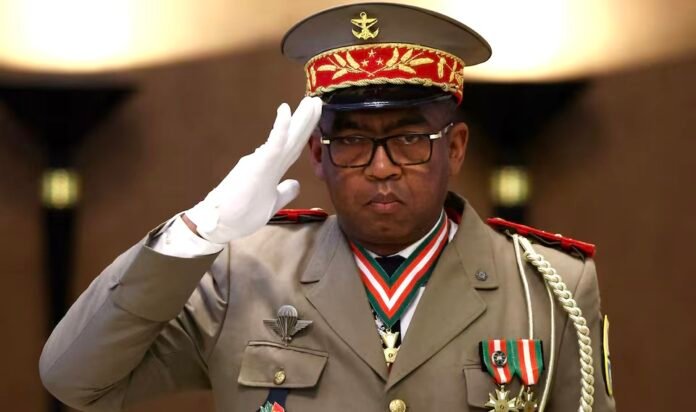Madagascar’s President Andry Rajoelina has appointed Army General Ruphin Fortunat Zafisambo as the country’s new prime minister, a week after dissolving the government in response to nationwide protests over persistent power and water shortages.
Zafisambo replaces Christian Ntsay, who was dismissed as part of Rajoelina’s effort to address mounting public anger. Before his appointment, Zafisambo served as the director of the military cabinet in the prime minister’s office.
Announcing the appointment on Monday, Rajoelina said Madagascar needed “a prime minister capable of restoring order and the people’s trust,” adding that Zafisambo’s main task would be to stabilise electricity and water supplies.
Earlier the same day, demonstrators returned to the streets of Antananarivo for a third consecutive week, demanding the president’s resignation despite last week’s dismissal of the cabinet. Police used tear gas to disperse protesters, many of whom were university students voicing frustration over poverty, unemployment, and corruption.
The protests, inspired by “Gen Z” movements in Kenya and Nepal, mark the largest wave of unrest on the Indian Ocean island in recent years. Television footage showed police clashing with demonstrators in the southern city of Toliara and the northern port of Diego Suarez.
Despite Madagascar’s vast natural resources, fertile land, and rich biodiversity, it remains one of the world’s poorest nations. According to World Bank data, income per capita has dropped by about 45% since the country gained independence in 1960.
The United Nations reported that at least 22 people were killed and more than 100 injured in the early days of the protests—figures the government has denied.
Rajoelina, who came to power in a 2009 coup and was re-elected in 2023, said in a speech on Friday that he was willing to listen to protesters’ grievances but rejected calls for his resignation.
A presidential spokesperson told Reuters that the demonstrations were being “exploited by political actors seeking to destabilise the country,” insisting that the president “remains committed to dialogue and to finding solutions that improve people’s daily lives.”
The presidency said in a statement that some civil society groups met with Rajoelina on Saturday, though others declined to participate, citing the government’s failure to guarantee protesters’ safety or release those who had been detained.
Source:Africa Publicity








